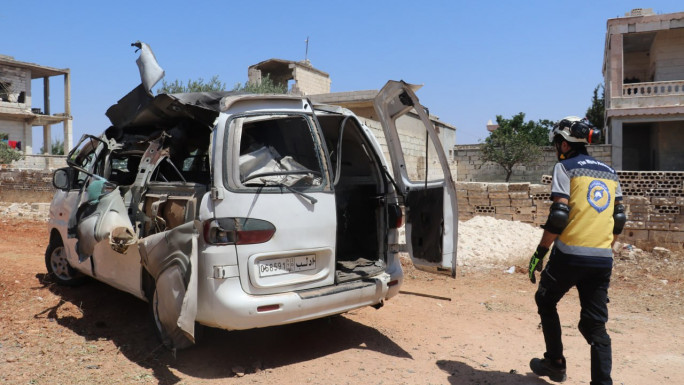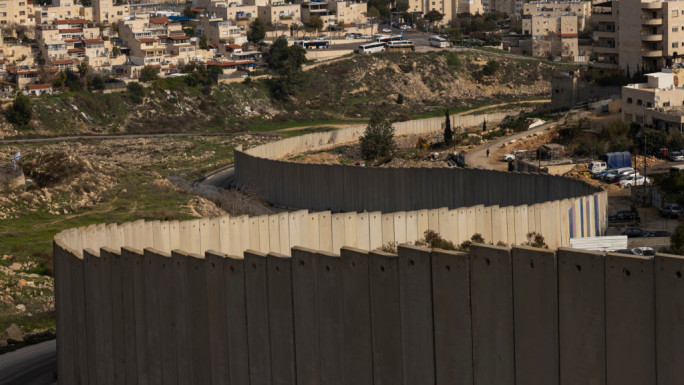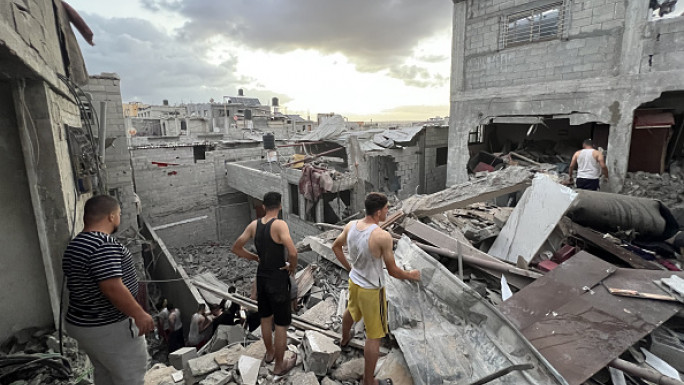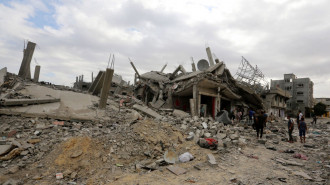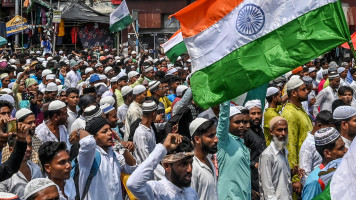Gaza ceasefire talks resume for second day in Qatar, as new assault looms
Mediators met in Qatar for a second day of negotiations in a bid to secure a ceasefire deal to halt the war on Gaza with top European diplomats expected in Israel on Friday to stress the urgency of averting a wider regional conflict.
The on-and-off truce talks reconvened in Doha on Thursday without Hamas, which has accused Israel of obstructing a deal and insists on the implementation of previously agreed terms.
The Qatari foreign ministry confirmed that Gaza truce negotiations would continue on Friday.
Mediators remain committed "in their endeavours to reach a ceasefire in the strip that would facilitate the release of hostages and enable the entry of the largest possible amount of humanitarian aid into Gaza", a ministry spokesperson said.
They are seeking to finalise details of a three-phase proposal initially outlined by US President Joe Biden in May.
While Hamas is not directly taking part, an official of the Palestinian movement, Osama Hamdan, told AFP the group would join if the meeting set a timetable for implementing the agreed terms.
He added that Hamas would not engage in negotiations that "give [Prime Minister Banjamin] Netanyahu more time to kill our Palestinian people".
US National Security Council spokesman John Kirby said the talks had "a promising start" but acknowledged "there remains a lot of work to do".
Israel's main military supplier, the US, has played a key role in the talks along with Qatar and Egypt.
Washington and its allies see the proposed Gaza truce as key to de-escalating soaring regional tensions, particularly with Iran.
"This is a dangerous moment for the Middle East. The risk of the situation spiralling out of control is rising," UK Foreign Secretary David Lammy said ahead of a visit to Israel with French Foreign Minister Stephane Sejourne.
Israel's Foreign Minister Israel Katz and Minister of Strategic Affairs Ron Dermer said they would "stress there is no time for delays or excuses from all parties on a ceasefire deal" in Gaza, Lammy said.
Sejourne added that "any miscalculation in the current situation could provoke a generalised conflagration".
While talks take place in the Gulf emirate, bombs have continued to fall on Gaza.
'We are being killed'
As they struggled to recover bodies from the ruins of yet another air strike on Thursday, Palestinians in north Gaza questioned why, considering Israeli Prime Minister Benjamin Netanyahu's team was in Qatar.
"Why did Netanyahu send a delegation to the talks while we are being killed here?" in Jabalia, Mohammed al-Balwi said as rescuers around him pulled bodies from the concrete wreckage.
They had found "limbs on the ground", he said.
Fears of a wider Middle East war have soared since the July 31 killing of Hamas political leader and truce negotiator Ismail Haniyeh in Tehran. Iran and its allied groups in the region blamed Israel and vowed revenge.
Haniyeh's death came hours after an Israeli strike killed Fuad Shukr, the military commander of Lebanon's Iran-backed Hezbollah movement, which has exchanged near-daily cross-border fire with Israeli forces.
Hezbollah, Iran 'may attempt' high profile assassination
Meanwhile, in Israel, ministers have received warnings from security officials that Iranian and Hezbollah attacks on Israel may come in the form of assassinating high-ranking figures.
According to a Ynet report, senior security officials warned the security cabinet that Tehran and the Lebanese group may respond to the assassinations of Shukr and Haniyeh by targeting Israeli ministers, MPs, military officers or senior officials in the security services.
On Thursday, Hezbollah's second in command Sheikh Naim Qassem said that the group intends to respond to the killing of its senior commander regardless of a possible ceasefire deal.
In an interview with the group's Al-Manar TV, Qassem said that a decision of a Hezbollah response to Israel’s strike on Beirut, which killed Shukr, had already been made and it "will be fulfilled".
He said that if Israel "continues its aggression" on Gaza, then the group would confront Israel "no matter the cost", but reiterated that the group would stop its attacks if a ceasefire was reached.
"Without a ceasefire in Gaza, we cannot talk about a ceasefire in Lebanon or in other places," he said.
However, Hezbollah's response to the killing of Shukr was "a completely separate [issue]" to the ceasefire negotiations, he added, and suggested that it would happen regardless of whether there is a ceasefire or not.
The group released on Friday a video showcasing numerous rocket launchers and military equipment in an elaborated underground facility.
Al-Manar said the video sent "a clear message to the Israeli enemy that the resistance is prepared for all possibilities".


